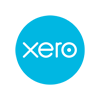Should you be a sole trader or limited company?
When you start a new business you will have to make a choice between setting up as a sole trader and setting up as a limited company. There is no ‘right’ decision, because circumstances vary from person to person and business to business, but whatever you decide you will have to register your choice with Her Majesty’s Revenue and Customs (HMRC).
Sole trading is by far the simplest option, and depending on your profits, it might be the best option in terms of tax. As a limited company, you will not be personally liable for the company’s debts, and again, depending on your turnover and profits, it may be the more tax-efficient option.
Sole trader
Being a sole trader does not mean you have to work alone; you can still employ other people – subject to the responsibilities required of any small business – but in essence you are both the business and the business owner.
You can withdraw cash from the business at any time without incurring any additional tax liabilities and you can draw or borrow from the business bank account, as it is essentially your account.
You will be classed as self-employed and need to file a self-assessment tax return, but will not be required to prepare full accounts for tax purposes, although it may be hard to keep on top of your financial affairs without doing so. You will also be liable for any debts the business incurs.
Limited company
A limited company is a separate legal entity, one of the implications of which is that you are not personally liable for any business debts. The business will also pay corporation tax on its taxable profits.
As an officer of the company, you will be classed as an employee for tax and national insurance (NI) purposes. The business must present annual prepared accounts under the provisions of the Companies Act.
Making a decision
There are pros and cons to setting up as a sole trader and setting up as a limited company, many of which will depend on your situation. Whatever you decide, choosing the right cloud accounting software can help you meet your record-keeping and tax obligations.






